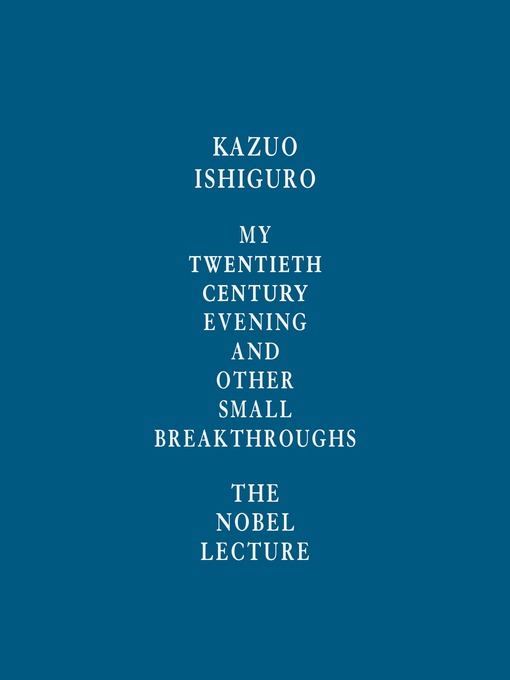
My Twentieth Century Evening and Other Small Breakthroughs
The Nobel Lecture
کتاب های مرتبط
- اطلاعات
- نقد و بررسی
- دیدگاه کاربران
نقد و بررسی

May 1, 2018
Yes, reading the inimitable Ishiguro's 2017 Nobel Lecture is easy, but the better option is listening to his crisp, gentle voice instead. Perhaps Sara Danius, permanent secretary of the Swedish Academy, missed the memo on properly pronouncing Ishiguro's first name, but her introduction passes quickly, leaving listeners to settle in as the Laureate begins in 1979 as a 24-year-old writer-to-be. In lyrical sentences that often sound like verse, he recounts being a five-year-old immigrant from Japan to England in 1960 when "multiculturalism [was] still round the corner"; composing his first novel, A Pale View of Hills, as "an urgent act of preservation"; "writ[ing] fiction that could work properly only on the page...something the other forms [film, television] couldn't do"; realizing that in "attend[ing] more to [his] relationships, [his] characters would take care of themselves." Despite calling himself "a tired author, from an intellectually tired generation," he promises he'll "carry on and do the best [he] can," even as he'll "be looking to the writers from the younger generations to inspire and lead us." VERDICT Ishiguro's delivery is so inviting, his hope so inspiring, making this short speech an aural treat worth regularly repeating.--Terry Hong, Smithsonian BookDragon, Washington, DC
Copyright 2018 Library Journal, LLC Used with permission.

In his acceptance speech for the 2017 Nobel Prize for Literature, Kazuo Ishiguro gracefully negotiates revealing his personal past and sharing his take on the political present. He does so at a pace that makes it easy to listen to his insights about changing cultures, the power of memory, and the efforts needed to attend to relationships that make life matter. At the podium, he tells stories of his childhood, adolescence, and early years as a writer, and of his marriage, several home offices, and, always, his need for a continuing relationship with literature. His wit is dry, apparently easygoing, and well delivered in unexpected nonpareils; his call for diversity, specific and actionable. This speech is accessible to all listeners older than 12 and is of import to those who know Ishiguro's body of work and those for whom the attraction is a short listen. F.M.R.G. � AudioFile 2018, Portland, Maine

























دیدگاه کاربران